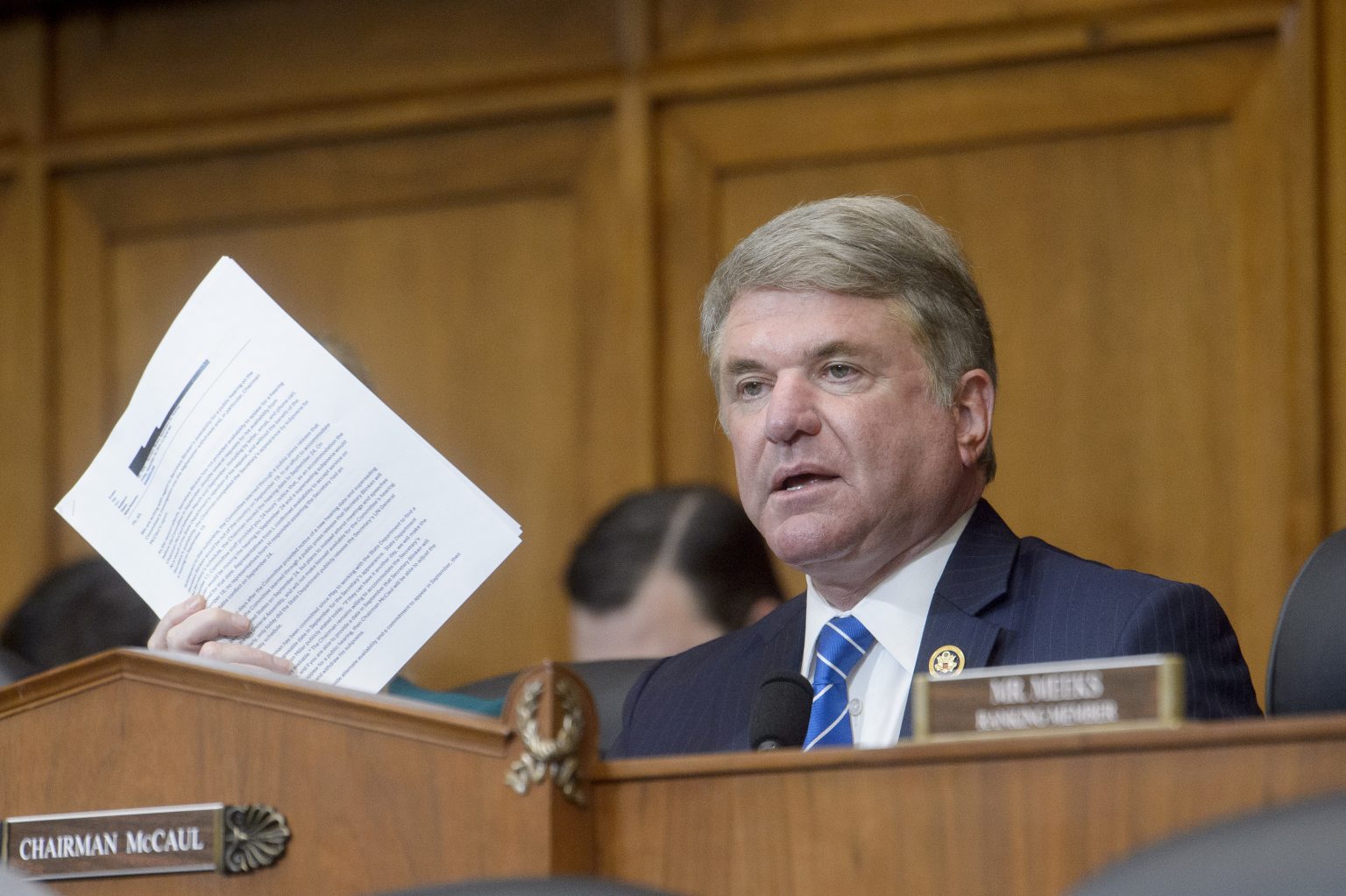Summarize this content to 2000 words in 6 paragraphs Representative Michael McCaul, a Texas Republican, said on Sunday that he supports an exception to President Donald Trump’s refugee freeze for the resettlement of thousands of Afghans who aided the U.S. during its 20 years in the country.Newsweek has reached out to McCaul’s press team for comment via email on Sunday.Why It Matters U.S. forces withdrew from Afghanistan in August 2021, ending a 20-year military presence that began as part of the War on Terror following the September 11, 2001, terrorist attacks.After the U.S. left, the Taliban quickly regained control, prompting tens of thousands of Afghans to flee, especially those who worked with the U.S. government and feared retaliation.Shortly after taking office last month, Trump signed an executive order pausing the United States Refugee Admissions Program (USRAP), freezing refugee processing across visa categories. Afghans who worked with the U.S. can also apply for Special Immigrant Visas (SIVs), which were affected by a separate executive order pausing foreign aid.What To Know Following the U.S. withdrawal from Afghanistan, then-President Joe Biden directed the Department of Homeland Security (DHS) to coordinate and support the resettlement of “vulnerable Afghans, including those who worked alongside us in Afghanistan.”Newsweek has also reached out to the DHS for comment via email on Sunday.McCaul, a former House Foreign Affairs Committee chair, discussed the issue and the now precarious situation many Afghan refugees are in with Margaret Brennan on CBS News’ Face the Nation on Sunday.He said that “leaving our Afghan partners behind” is something the U.S. needs to “fix.””We promised them we would protect them when they worked with our service men and women in Afghanistan. These are the interpreters, the ones who were right alongside our combat veterans, they have these special immigrant visas and it’s my view that they should be able to go forward with the SIV program,” the congressman said.He noted that the applicants have been “vetted,” concluding that, “it seems to me we have to live up to our word, otherwise down the road in another conflict no one’s going to trust us.”Under Trump’s executive order, flights for resettlement, scheduled for January through April, are being canceled, leaving approximately 2,000 individuals in immediate limbo—potentially stranded in neighboring countries like Pakistan—and many more uncertain about their future.The conversation about Afghan resettlement has resurfaced following Trump’s executive order Friday, in which he offered refuge to Afrikaners, predominantly descendants of Dutch settlers in South Africa. He wrote that if “South Africa continues these unjust and immoral practices” related to land laws, the U.S. “shall promote the resettlement of Afrikaner refugees escaping government-sponsored race-based discrimination, including racially discriminatory property confiscation.”The move has drawn criticism from some foreign policy experts and lawmakers, who argue that Afghans awaiting resettlement risked their lives aiding the U.S. in Afghanistan, while Afrikaners have no clear connection to the U.S.
Representative Michael McCaul, a Texas Republican, is seen on Capitol Hill in Washington, D.C., on September 24, 2024.
Representative Michael McCaul, a Texas Republican, is seen on Capitol Hill in Washington, D.C., on September 24, 2024.
AP Photo/Rod Lamkey, Jr.
What People Are SayingRepresentative Scott Peters, a California Democrat, wrote in an X, formerly Twitter, post on Saturday: “Why the hell do we continue to strand thousands of vetted Afghans who fought the Taliban alongside us overseas and instead offer refugee status to people who aren’t refugees? Abandoning our Afghan allies endangers the family of active-duty service members and damages trust abroad in our military, empowering our enemies.”Jason Kander, a U.S. veteran, wrote in an X post following Trump’s executive order offering refuge to white South Africans: “Afghan allies who risked their lives for America must live in hiding in Afghanistan but white South Africans can come here as refugees? Transparently pathetic.”Ahmad Shah, a member of Afghan USRAP Refugees, recently called on the U.S. to reconsider: “We seek the reversal of the ban on the refugee program on humanitarian grounds.”The U.S. agency overseeing refugee processing and arrival told staff and stakeholders last month: “Refugee arrival to the United States have been suspended until further notice.”Shawn VanDiver, a military veteran and the president of #AfghanEvac, told NPR in January: “We made a promise to our Afghan allies, and fulfilling that promise is not just about policy—it’s about honor and integrity.”International Rescue Committee (IRC) said in a January 23 statement: “The IRC urges the Trump administration to reverse course, maintain the resettlement program and work with its partners around the world to maintain global resettlement slots. If the program is not restored, political dissidents, religious minorities, and the most vulnerable victims of war and disaster will pay the price, and so will the United States.”What Happens Next?Trump issued a 90-day pause on foreign aid to conduct a thorough review of “programmatic efficiencies and consistency with United States foreign policy.”Within 90 days, the secretary of homeland security, in consultation with the secretary of state, “shall submit a report to the President through the Homeland Security Advisor regarding whether resumption of entry of refugees into the United States under the USRAP would be in the interests of the United States.”


